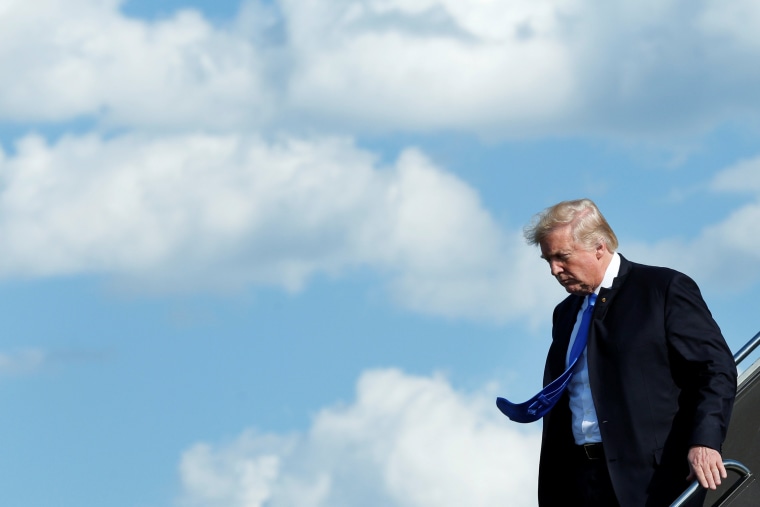Going after former FBI Director James Comey for leaking could backfire for President Donald Trump, experts warned Friday after Trump's personal attorney is said to be preparing to lodge a formal complaint.
As part of their broader effort to discredit Comey, Trump and his defenders have seized on his revelation that the former FBI director allowed a friend to share a memo detailing his conversation with the president to the press.
Comey told the Senate Intelligence Committee Thursday that he leaked the document in the hope it would trigger the appointment of a special prosecutor.
A source close to Trump’s outside legal team said the president's personal attorney, Marc Kasowitz, will file a complaint regarding Comey’s leaked memo with the Department of Justice's Inspector General and the Senate Judiciary Committee.
But legal experts say it's impossible to find any obvious violation in Comey's behavior, arguing instead that Kasowitz's threat is more likely a meritless attempt to bully Comey — which could have unintended ramifications for Trump.
"While Comey was criticized for his public comments during the campaign, none of them, nor the leaked memo, violates DOJ's rule prohibiting disclosure of information to the media,” said Stephen Gillers, an ethics expert at the New York University Law School.
Meanwhile, Gillers added, "in no circumstance would the Judiciary Committee have jurisdiction to impose a penalty."
It's unclear what rules exactly the complaint would accuse Comey of violating, since no known complaint was filed before the weekend.
"They're going to compound the problem."
Comey recorded details of his meetings with Trump in personal, unclassified memos, and he said he asked a friend to provide the contents to an unnamed reporter. Leaks generally involve classified information, which are protected by law.
Kathleen Clark, an expert in government ethics at the University of Washington Law School, said there are a number of rules that protect the president's conversations with aides, but that none of them apply here.
"We do have law that applies here and it's called the First Amendment. And unless there's any other law that prevents that speech, it's protected by the First Amendment,” Clark said. "I'm searching for any possible reasons it could be a problem and can’t find one." The First Amendment protects freedom of speech and the press.
If the White House believed there were any rules prohibiting Comey from sharing his conversations with the president, they should have asserted that before his testimony, she said. Instead, they publicly waived executive privilege and let Comey’s testimony proceed.
And it seems unlikely that Comey, who led the FBI as it pursued investigations into government leaks, and thus presumably knows the law here well, would incriminate himself on live TV while testifying before the U.S. Senate, Clark added.
Kasowitz’s threat is "bluster," Clark said.
Richard Painter, the chief White House ethics lawyer in the George W. Bush administration and a frequent Trump critic, said Comey could be considered a witness in the ongoing investigation being led by special counsel Robert Mueller into alleged Russian meddling in last year's elections and related matters.
"The Department of Justice reports to the President of the United States. And the President of the United States is saying, 'you're going to be a witness against me? I'm going to open an investigation against you' — that's clearly witness intimidation, and that itself is obstruction of justice," Painter said.
"So they're going to compound the problem," he said.
Painter said he's never heard of a former government employee being investigated for sharing unclassified information, noting entire shelves could be filled with books written by former officials revealing the inner workings of the White House.
"It's the worst idea in the world," Painter said.

